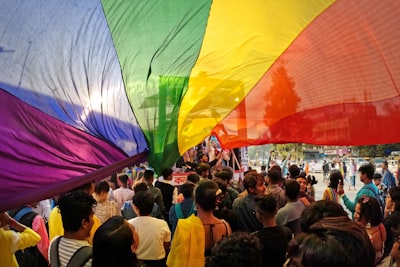Summary
A fresh legislative push by the Hong Kong government to recognise same-sex partnerships appears precarious, facing notable resistance within the Legislative Council. The initiative, spurred by a 2023 Court of Final Appeal ruling ordering recognition of certain core rights for same-sex couples, offers only limited recognition—specifically, for unions first legally registered elsewhere. Despite some political support, significant opposition threatens the measure’s passage, meaning legal equality for same-sex couples could remain elusive and court challenges will likely persist.
Analysis
The government's proposal to comply with judicial orders is pragmatic but minimalistic. By restricting recognition to overseas-registered partnerships, the legislation neither introduces full equality nor fully satisfies activists' demands. This approach seems designed to fulfil only the letter of the court ruling, not its broader spirit.
The political resistance—voiced strongly by major parties but with the support of some, like Regina Ip’s New People’s Party—reflects broader societal conservatism and political caution. The hesitation may also stem from fears of alienating traditional constituents or Beijing’s ambiguous signals regarding LGBTQ+ rights.
From an ethical and legal point of view, shelving substantive reforms or passing only symbolic bills could worsen social divides and prompt further judicial intervention. The government’s reluctance to define “core rights” places the burden back on courts and activists, perpetuating judicial activism in absence of legislative consensus.
Discussion
The controversy matters at both the symbolic and pragmatic levels. Hong Kong’s role as an international city is under the microscope: does it offer real inclusion and legal certainty to all residents, or only to some? Although the proposal makes a nod towards progress, the narrow scope may be perceived as a half-measure, potentially emboldening more robust demands for equality and, ironically, encouraging further lawsuits.
Parallels can be drawn with other jurisdictions—such as Taiwan or many Western countries—where gradual, sometimes grudging reforms have eventually paved the way for fuller recognition. Yet, as seen elsewhere, piecemeal approaches can prolong uncertainty and frustration for affected communities.
Questions remain: Will legislative caution ultimately delay the inevitable, or does persistent opposition spell years of stagnation? Is Hong Kong prepared—politically, socially, and culturally—for such a shift?
In the end, the effort to balance legal compliance, political realities, and international reputation will profoundly shape Hong Kong’s identity and its LGBTQ+ community’s well-being.

Comments
No comments yet. Be the first to comment!